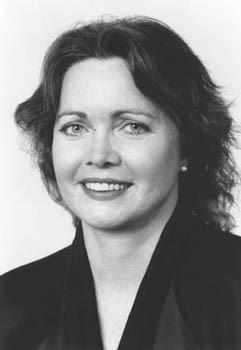Ellen Taaffe Zwilich
Composer

1939 - Present
Inducted in 1994
Biography
In 1983, Ellen Taaffe Zwilich became the first woman to win the Pulitzer Prize in music. Today, she is widely acknowledged as one of the most acclaimed American composers, writing largely in the post-modernist, neo-romantic style. A graduate of Florida State University's College of Music, Zwilich also was the first woman to receive a doctorate in composition from The Julliard School in New York City.
Zwilich is a Florida native, born in Miami in 1939. Born into a non-musical family (her father was an airplane pilot), she showed a remarkable affinity for music at an early age. By the time she took her first piano lessons at age 5, she was writing her own compositions. Her family encouraged her musical bent, and Zwilich became proficient in piano, violin and trumpet by the time she graduated high school.
She chose Florida State University to launch her academic career, earning both a bachelor's (1960) and a master's degree in composition (1962) from the university's College of Music. Before she left FSU, she heard her own compositions performed by the university's orchestra, a rare treat for a music student.
After a short teaching stint in South Carolina, Zwilich moved to New York City in 1964 and began supporting herself as a freelance violinist (and occasional usher at Carnegie Hall). She soon was playing with the American Symphony Orchestra, playing for such noted conductors as Leopold Stokowski, Karl Boehm and Andre Previn. During her seven years with the orchestra, Zwilich grew to realize that her true passion lay in composing, not playing.
In 1969, she married Hungarian-born Joseph Zwilich, a violinist with the Metropolitan Opera House, and soon after enrolled as a doctoral candidate in composition at Julliard, studying composition with Elliott Carter and Roger Sessions. By the time she graduated in 1975 (becoming the school's first woman to earn a Ph.D. in composition) she had been brought to prominence by famed conductor Pierre Boulez, who conducted Zwilich's Symposium for Orchestra for the Julliard Symphony Orchestra.
After her husband died in 1979 (of a heart attack suffered during a performance with the Metropolitan Opera), Zwilich took a new look at her music. Her style shifted from jagged, atonal harmonies to smoother melodies with simpler structures. She thus began the most prolific and fruitful period of her life.
In 1982 her first symphony, originally entitled Three Movements for Orchestra, later renamed Symphony No. 1 was premiered by the American Composers Orchestra under Gunther Schuller. The piece won the 1983 Pulitzer Prize for Music, making Zwilich the first woman to be so honored. The accolade brought fame and enough income from commissions, recordings and major performances for Zwilich to be able to devote all her time to composition.
By 2000, Zwilich had produced five major symphonies plus dozens of pieces for chamber ensembles, vocal and choral ensembles and orchestras. A whimsical homage to cartoonist Charles Shultz, creator of the popular "Peanuts" comic strip, Zwilich's Peanuts' Gallery for Piano and Orchestra, premiered at Carnegie Hall in 1997. A half-hour show of a performance of the popular piece by the Florida State University Orchestra aired on PBS-TV in 2006 and again in 2008.
Over the years, Zwilich's career achievements have brought her to the fore of the world of contemporary classical music. Aside from her Pulitzer Prize, Zwilich has been honored with four Grammy nominations, a Guggenheim Fellowship, an Academy Award from the American Academy of Arts and Sciences, six honorary doctorates, being named Musical America's Composer of the Year in 1999 and numerous other citations of excellence in musical composition.
A music critic for The New York Times described Zwilich as "a composer intent on communication with her audience and in full command of the technical means to do so. She unites music that pleases the ear and yet has spine."

